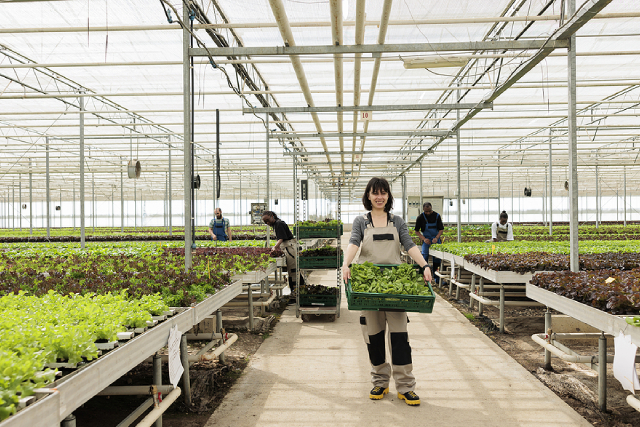
27 Feb How Hydroponic Farming Helps Boost Fresh Produce Businesses
Hydroponics has been making waves in the commercial farming industry in the last few years, and for good reason. According to a recent report from Markets and Markets, the market for hydroponic systems in Singapore and around the world was valued at $9.5 billion in 2020 alone and is forecasted to reach almost $18 billion by 2026. This comes as no surprise, considering that hydroponics has benefited numerous industries, particularly fresh produce businesses.
If you own a fresh produce business, you are likely among the many entrepreneurs currently wondering what all the fuss surrounding hydroponics farming is about. While it is true that the initial costs of installing a hydroponic system can be significant, the advantages of hydroponic farming methods can lead to a substantial return on investment (ROI). Read on to find out more about how hydroponic farming can help boost fresh produce businesses.
1. Efficiency
Generally, plants cultivated in hydroponic environments are healthier than those grown through traditional farming methods. This means that hydroponic farming leads to larger yields in shorter time frames. Since crops grown with the use of this method are not planted in soil but are suspended in water, they do not grow large-scale root systems and instead redirect their energy to their growth of fruit and vegetation.
Moreover, since hydroponic farming does not require almost as large a geographical footprint as traditional farming, its yield-per-acre measures tend to be higher. Finally, because the majority of hydroponic systems are indoors, farming using this method can continue throughout the year instead of operating seasonally. All of this leads to yields that are twice or eight times higher compared to those achieved with soil farming methods.
2. Quality
There are many reasons why crops grown in hydroponic environments can be higher in terms of quality, but the most important among them is the use of alternative substrates. When crops are cultivated in a sterile medium, such as coco coir or rock wool, they have superior texture and taste since they do not pick up the grittiness from sand or bland earthy tones from the soil.
Furthermore, since pesticides are less needed in hydroponic farming, it becomes much easier and more affordable to grow healthy organic produce. Finally, the year-round cultivation cycle of hydroponic farms and the ability to grow many crops almost anywhere because of a controlled indoor environment means that crops that are locally grown arrive at markets in greater variety and with better freshness.
3. Sustainability
One of the best things about hydroponic farming is that it requires less water. This fact alone means that hydroponic farming methods are far less draining on resources than traditional soil farming. However, this is not the sole benefit of this farming method. Since climate cannot be controlled in indoor hydroponic environments, produce that would otherwise require importation from distant places can already be grown locally, which reduces both the environmental and financial impacts of transportation.
Additionally, the absence of soil means that there is less prevalence of pests, thereby eliminating or minimising the need for using pesticides, fungicides, insecticides, and other chemicals. Finally, since hydroponic farming is often vertical in format and allows plants to grow closer together because of smaller root systems, hydroponic installations need less land area, which results in less deforestation and disruption of natural environments.
Conclusion
Hydroponic farming undoubtedly provides numerous benefits to fresh produce businesses. Although it is true that installing a hydroponic system comes with significant upfront costs and that not all crops can be cultivated in hydroponic settings, there are still many good reasons for fresh produce businesses to look into hydroponics for their facilities. At the very least, you, as a fresh produce business owner, should explore the possible ways in which you can include hydroponically cultivated crops in your supply chain.
If you are planning to install a hydroponic system in your facilities and are looking for a reliable supplier for all your plastic component needs, look no further than Vicplas. We provide top-notch Hydro-Agriculture solutions under our VPONIC™ line, which consists of premium and affordable channels, trays, pot nets, and gutters, all customisable to meet your needs and preferences.
Aside from plastic components of hydroponic systems, we also have a comprehensive range of ISO-certified and SGBC-BCA Green Mark-certified piping materials, spanning from SS213, SS272, and SS141 uPVC pipes. These high-quality PVC pipes and PVC pipe fittings cater to various applications, including drainage systems, sanitary systems, electrical conduits, and more. Please do not hesitate to contact us anytime to learn more about our great offers.
